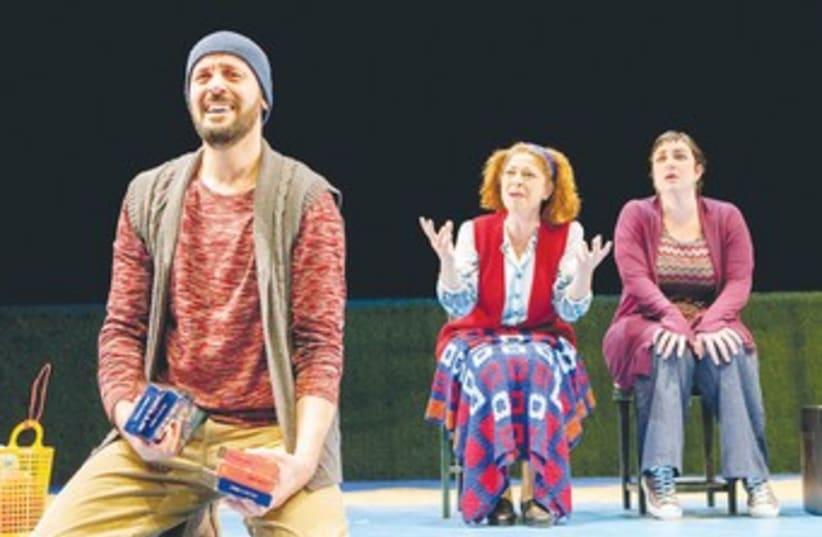Burying one’s head in the sand, a house built on sand, the sands of time, sand as a grain of infinity: sand is one of director Ofira Henig’s symbols, as are step-ladders to nowhere in Ala Hlehel’s allegorical tale of yearning, of impossible aspirations and frustration with what is perceived as the bleak reality of life for Arabs in Israel.Perhaps the most troubling image in what is definitely not a polemic, but is certainly political theater, is that of a couple selling sandwiches and cold drinks to eager rubberneckers at a Gaza overlook during Operation Cast Lead (2008-09). This and the 2006 Second Lebanon War are the lethal backdrop to, and affect the storyline of, Sea Wind.Except for the ubiquitous Ha’ze (Halifa Natour) the characters have no names, and even Ha’ze might be translated simply as “this one.” There’s the Author (Ali Suliman), who’s been invited to London for a conference but whose passport has lapsed; the Sister (Hulud Basel Taunus), who raucously demonstrates; the Cousin (Norman Issa), who’s a fixer everybody turns to, but is denied the family home; and the Mother (Salwa Nakara), around whose mostly still figure the action swirls, and who watches TV soaps in order to evade reality.
Hlehel’s book is titled My Secret Relationship with Carla Bruni and indeed a letter to Bruni does figure among the twists and turns of characters, events and places in a story that, rather than a bitter rant, has been brought to the stage with gentleness and humor.Nakara, Taunus, Issa and Suliman beautifully interact, the hallmark of a Henig production, each creating a character with its own truth. The Mother is bitter and bereft. Organizing demonstrations is all the loveless Sister has. The Cousin has distanced himself emotionally. The Author seeks substance.But the usually superb Halifa Natour is here the odd man out. He lets himself go a little too much. His Ha’ze lacks real focus, is too much into schtick.Odelia Segal and Yoav Hite (that awful Gaza couple among the rest), add their competence to a troubling piece that asks questions of itself and of us.Sea Wind
Adaptation by Ofira Henig, Halifa Natour Haifa Theater, January 19
